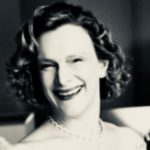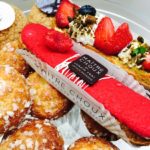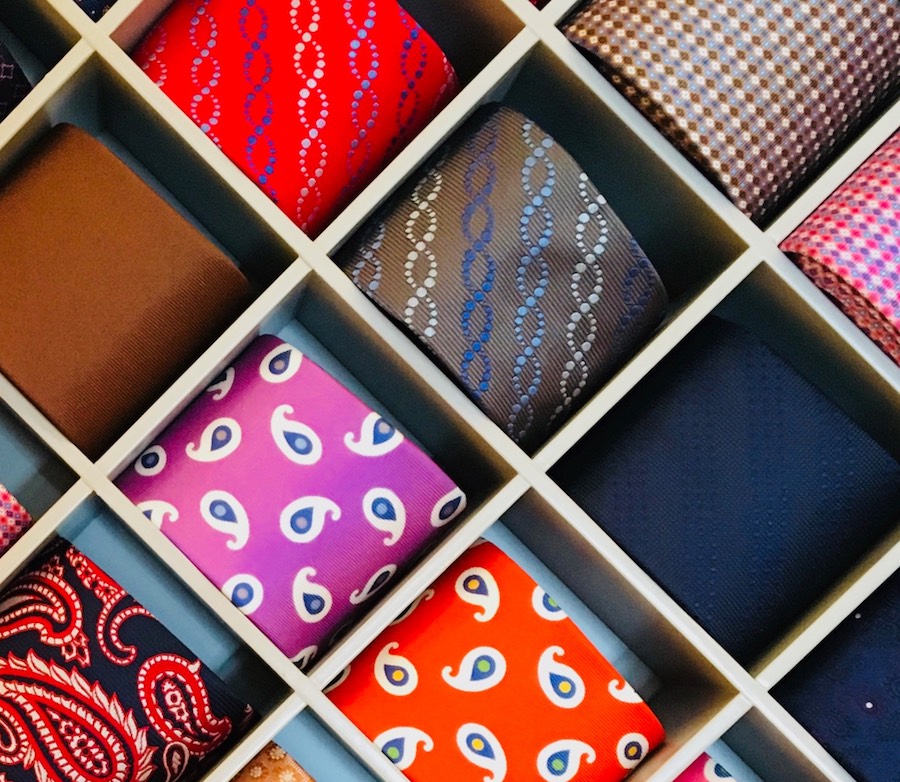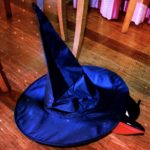Martha watched the robin jobbing at the crumbs she had strewn on the icy patio. She took a sip of her first coffee of the day, savouring the roast caramel flavours, and tugged her dressing gown tighter around her. It was cold, one of the coldest winters on record, the news said, but Martha was cosy inside her well-heated house, cashmere dressing gown and fluffy pink slippers. Since resigning from her job to work freelance at home, Martha had often found herself still in her slippers and a dressing gown at the end of the day. Then she would hurtle upstairs to pull on a tracksuit and drag a comb through her hair before coming down to start James’s dinner. It wouldn’t do for James to come home and find her still in her pyjamas.
Through the double-glazed panes of the patio door, Martha’s gaze swept the garden. The rhododendrons, sugar-coated with frost, huddled against the garden wall and the muddy rectangle which, in spring, became their lawn, was darkly striated with the claw-like shadows cast by the blackened branches of the horse chestnut tree. She looked up at the sky, an implacable grey. There was a thirty percent probability of snow, if the forecast was to be believed. Martha wondered where the robin would shelter. He thrust his tiny beak into the gaps between the York stone slabs. Were it not for her generosity with the toast crusts, he might have been starving.
She had noticed him a few weeks previously, pecking hopefully at the hardened soil under the rhododendrons. Two bites into her toast, it had occurred to her that the robin was hungry. She had pushed open the patio door, startling him with the click of the latch, and flung a handful of crumbled toast onto the patio. Every morning since, the robin had been out there, head cocked, eyes shining like little onyx beads, as he waited to share her breakfast. In fact, he was starting to look rather plump. It struck her that buttered toast might not be the healthiest diet for a robin. If this was to be his fare all winter, by spring he’d be struggling to get off the ground. Taking her phone from her dressing gown pocket, Martha tapped at the screen, and there it was, on the Amazon website. She couldn’t believe she hadn’t thought of it earlier: birdseed, organic, fairly sourced, ecologically packaged, and available for next-day delivery.
Ambling into the kitchen, Martha refilled her coffee cup. Just as he had done every morning of their nine years together, James had left his dirty cereal bowl and mug on the marble counter. With one small incline of his Saville Row-clad waist and a quarter turn to the left, he could easily have deposited them in the dishwasher. But he never did. The dishwasher was German, top of the range, boasting twelve programs which all ensured a glittering finish on any piece of dishware or cutlery. The one thing it couldn’t do was extend a mechanical arm and load itself.
There was a brown kidney-shaped stain where James had tipped the remains of his tea, along with the used teabag, into the white porcelain sink. A pretty little Majolica dish, specifically designated as the receptacle for used tea bags, sat beside the kettle, but James never used it. Martha rinsed off James’s soiled breakfast things and placed them in the dishwasher. Then she poured bleach onto the rusty stain, leaving it to soak. The 1950s vintage glass jar they used to store the granola sat open on the counter. It was one of a set of four which Martha had bought on their honeymoon in Paris. James had complained about having to lug the jars back to England but, with their broad bell shapes and screw-on green lids, they were perfect for keeping dry goods fresh: James’s granola, pasta, flour, and the custard creams Martha loved. But only if you put the lids back on. Resealing the jar, she returned it to the cupboard next to the other three. She put the milk back in the fridge and the sugar bowl near the kettle. The sugar was clumped in places where James had used the Georgian silver sugar spoon to stir his tea. He was in a rush to get to the office in the mornings, he said. His job was extremely demanding.
Upstairs, Martha retrieved James’s shirt from their bedroom floor. In the bathroom, where he always left the toilet seat up and had never shown the slightest curiosity as to the raison d’être for the toilet brush, she located his boxer shorts and balled-up socks on the floor adjacent to the laundry basket. She trotted back downstairs, put on a wash, and settled at her computer.
At lunch time, Martha strolled to the kitchen to put on more coffee and nibble on a custard cream from one of the vintage storage jars. Then she wandered over to the patio doors to look out at the garden. The robin was chirruping as he hopped up and down the patio table. She was certain that he caught her eye as she watched him through the double-glazed pane. Martha walked back to the kitchen, took the jar of James’s granola out of the cupboard and sifted through the contents to pick out the nutty bits. When she opened the patio door, the blast of cold air made her shudder. The robin cocked his head and looked at her, but he didn’t fly away. ‘Tomorrow you get real food, Little Man,’ she said, scattering the nuts onto the York stone.
The delivery man’s eyes crinkled at the corners when Martha opened the door. She coloured as she realised that she was still in her pink fluffy slippers and dressing gown. It was 2.30 p.m.
‘I’ve been up since 6.’ She snatched the package from him. ‘I’ve been too busy to get dressed.’
‘Have a good day, Ma’am’ he said, dropping his gaze. But he turned back and grinned at her as he bounded down the stairs to the pavement.
Martha couldn’t help but smile back. He was nice-looking, tall and well-muscled in a compact way. She shut the door and inspected her reflection in the hallway mirror. A rosy cheeked, bright-eyed face peered back, topped by a scraggly pony-tail. She went upstairs, showered, dressed, and combed her hair. Then she ripped open the package and stepped onto the patio to deliver the robin’s meal. He was waiting for her, of course, hopping back and forth on the table.
The next morning, Martha was dressed before she went downstairs to brew her coffee, clear up after James and feed the robin. By 11 a.m. she was scrolling through Amazon, wondering whether there was anything else she could order for next-day delivery. Glancing through the panes of the patio door, she saw the robin, his head bobbing as he pecked at the seeds, picking out his favourites. He was joined by a pair of sweet little blue tits who trilled and flitted to and fro. Then, with a whirr, a rather fat pigeon arrived. A crow flapped down and perched imperiously on one of the garden chairs before descending to partake of the feast. One click later, Martha had made her purchase.
‘I’m glad to see you’re not quite so busy today, Ma’am.’ It was the same delivery man. Martha was wearing her good jeans, a soft lilac jumper, and boots. Her hair was brushed to a glossy sheen and she had applied a little lipstick and mascara.
‘I work from home…’ she tailed off, feeling the heat rise on the skin of her throat.
‘It’s heavy,’ the delivery man jabbed his thumb at the thigh-high box. ‘Shall I bring it into the hallway for you?’
‘Actually,’ Martha bit her lip, ‘would you mind carrying it downstairs?’
And that was how the delivery man, Andy, his name was, ended up lugging the box into the kitchen, helping Martha unpack it and position its contents in the garden. She made him a cup of her caramel roast coffee afterwards since, he told her, his van was legally parked. It turned out that Andy had been an accountant but had hated it, so now he was studying to be a teacher at night and delivering parcels by day.
‘You’ll have to go out and crack the ice in the mornings.’ Andy surveyed the new birdbath positioned in the middle of the muddy patch that would, one warmer day, become lawn.
Martha nodded, wondering whether he might like a custard cream. He had admired the Georgian spoon while adding sugar to his coffee, and then asked for a teaspoon so he could stir it.
‘You should think of getting a feeder, rather than just scattering seeds on the ground. It’ll stop the pigeons scoffing all the food,’ he said.
They scrolled through her phone and Andy pointed out the Pigeon-Deterrer Birdfeeder For Small Birds, ingeniously constructed so that larger birds and squirrels couldn’t get at the food.
‘See you tomorrow,’ he said when he left.
‘Oh, will it be you who delivers the birdfeeder?’ Martha hoped she sounded casual.
‘This is my sector. Every day but Sundays and Mondays.’ He gave her a small salute.
The next day, Martha wore a denim skirt, tights, and an aquamarine cashmere jumper which she thought brought out the blue of her eyes. But the birdfeeder didn’t arrive. She tracked the parcel. ‘Processing,’ it said. Then she received an email saying that there was a supply problem and that the birdfeeder would be delivered in three to four days. It was Thursday, so there was every likelihood that the parcel would arrive on Sunday or Monday when Andy wasn’t working.
Martha trudged upstairs and changed into her tracksuit. She dragged her hair into a ponytail, wiped off her lipstick and went downstairs to empty the dishwasher. Outside the birds were rioting on the patio: hordes of pigeons chasing off the blue tits, and crows jumping up and down on the furniture, cawing, trying to intimidate the pigeons. The robin was nowhere to be seen. Martha opened the jar of custard creams and scanned the trees, searching for the flash of orangey-red. She ate four biscuits.
‘What the hell is going on outside?’ James said on Saturday morning. He was stirring his tea with a teaspoon for a change. ‘There’s crap all over the patio furniture. And what’s that monstrosity in the middle of the lawn?’
‘It’s a birdbath,’ Martha said. ‘I like birds.’
‘I’ll move it under the tree where it’s less of an eyesore.’ James dumped his egg-stained plate into the white porcelain sink. ‘Birds are messy,’ he continued. ‘You’ll spend your life cleaning up after them.’ He frowned and tipped the contents of his gym bag onto the kitchen floor, rifling through the sweaty clothes, some of which were lying in the granola he had spilled earlier while sifting through it for the missing nuts. ‘You’re making a lot of extra work for yourself,’ he said, stepping over a pair of pungent boxer shorts. ‘Those birds will shit everywhere. And pigeon shit is really acidic. You’ll have to scrub it off the patio or the York stone will be ruined.’
‘I’ve ordered a feeder for small birds,’ Martha said.
James found his headphones amongst the gym clothes and wound them around his neck, striding across the cream carpet. ‘Even with a feeder, birds chuck seed everywhere. If you don’t go out there every day and sweep it up, it’ll attract rats.’ He slammed open the patio door, startling the birds which rose, flapping, into the air. ‘By the way,’ he shouted as he stomped towards the birdbath, ‘Did you eat all the nuts out of my granola?
James was right. That afternoon, just as dusk was settling over the blackened branches of the horse chestnut tree, they saw a large rat lurking under the patio table. He was dining like a king.
‘Dear God! What did I tell you?’ James glared at her, thumping his red wine down on the coffee table.
On Sunday morning, James drove to the DIY shop and bought rat poison which looked like little brown pellets.
‘I thought rat poison was supposed to be bright blue,’ Martha said.
‘I’m not putting bright blue stuff all over the lawn. It’s an eyesore. It’s bad enough having that ugly birdbath. Please consult me before you order any more things for the garden.’
‘Won’t the birds eat it?’ Martha asked.
‘No, it’s for rats.’ James’s tone suggested that she was being particularly stupid.
On Monday morning, Martha sighed when she saw the dirty cereal bowl on the table alongside the open jar of granola. But instead of tidying them away as she usually did, she brewed her coffee first and strolled to the patio door, hoping to see her robin. Her knees sagged and the mug fell from her hands, splattering coffee in a dark arc onto the cream carpet. The York stone was littered with little corpses: the fat pigeon and his mate, the blue tits, a blackbird, and a crow. Fumbling with the lock on the patio door, Martha stumbled out into the winter morning. Under the table was the rat, quite dead, its mouth stuck in a rictus revealing long yellow teeth. She ran up and down the garden, bending to peer under the frosted rhododendron bushes. More dead birds lay, half frozen, under the horse chestnut tree, but nowhere did she see the robin.
‘My little man.’ Tears burned her icy cheeks. She knew that he might be lying, cold and stiff, in some other garden.
Dragging a shovel from the shed, Martha dug a pit under the horse chestnut tree. The ground was unforgiving and her hands were soon red, the knuckles splitting. She tipped the dead rat and the birds into this mass grave, covered it over, and laid a stone on top as a marker. Then she swept every inch of the patio until anything that looked like a little brown pellet was collected. By the time she lurched back into the house, her teeth were chattering and her fluffy pink slippers were sodden and brown. Martha threw the pellets and her slippers into the rubbish bin, then she sought out the box of rat poison which James had left under the sink next to the bleach.
‘POISONOUS TO BIRDS AND WILDLIFE,’ she read. The instructions recommended placing the pellets into a pipe-shaped container so that birds could not get at them. You could buy a suitable container on the website, but the inside of a toilet roll would work just as well, they said. Martha sank into a chair at the kitchen table and read the instructions again. They were very clear. She wondered whether James had read them at all. Or perhaps he had simply disregarded them. And now her robin might be dead. Martha placed the box of rat poison on the table next to the jar of granola and picked up its bottle-green lid, turning it round and round in her hands.
That night, Martha dreamt that she heard a bird singing outside her bedroom window. She knew it couldn’t be real, because the only bird she knew of which sung at night was the nightingale, and nightingales do not sing in the middle of winter. In the morning she woke with something that felt like a stone in her chest.
James had already left for work early, as he always did, when Martha rose and took her hairdryer from the bathroom, carrying it down to the kitchen. She placed James’s dirty cereal bowl into the expensive German dishwasher which she set to 50 degrees ‘intensive’. The vintage glass jar containing James’s granola sat open on the counter, as usual, but, instead of screwing the lid back on and replacing the jar in the cupboard, Martha put on her pair of washing up gloves before picking up the jar and flushing the remaining granola down the toilet. Then she washed out the interior of the jar with hot soapy water, being careful not to wipe down or wash the outside. Keeping on the gloves, she plugged in her hairdryer and blasted hot hair into the jar until it was completely dry. She took the box of rat poison from under the sink and poured all the little brown pellets into the clean jar, screwed on the lid, and put it into the cupboard next to the other bell-shaped glass jars with bottle-green lids. Next, still wearing the gloves, Martha took down the jar containing her custard creams. She tipped the custard creams into an empty cake tin which she sealed and placed on the counter near the kettle. Then she also washed out the interior of the custard creams jar, handling the outside with her gloved fingers and making sure it wasn’t smudged. She dried the inside with the hair dryer, opened a new box of granola, emptied it into the jar, screwed on the lid, and placed it in the cupboard alongside the jar of poisonous brown rat pellets. The empty boxes for the rat poison and the granola she tore into tiny pieces and flushed down the toilet. Finally, she took off the rubber gloves and went upstairs to shower and dress.
At noon she received a phone call: James had suffered a seizure and been rushed to hospital. By the time Martha got there, James was dead.
Martha heard birdsong again that night. She thought of the mass grave in the garden and James, cold in the hospital morgue. Sitting up in bed, she listened to the trills and warbles outside her window. It was as though the ghost of one of the little birds she had been forced to bury had come to serenade her.
On the Wednesday, she opened the door to a smiling Andy. His face fell as soon as he saw her expression. He held out the parcel. ‘It’s the birdfeeder, I think.’
Martha took it from him. Andy hesitated then turned to walk down the steps. Before he reached the pavement, she called after him. ‘Wait, Andy, can you help me set it up? Find a suitable place to hang it?’
He glanced at the van, parked on a yellow line, then back at her. ‘Yeah, sure. Just let me move the van.’
In the nights that followed, Martha often woke to birdsong. Every morning she dressed as soon as she rose. The birdfeeder hung from a hook which Andy had drilled into the wall above the patio door, and her coffee was now always accompanied by the twittering of multiple small birds, mainly sparrows and tits. But of the robin, there was no sign.
The toxicology report showed that James had ingested a common poison used to kill rats by thinning their blood. The quantity was not enough to kill a human being, except in rare cases. James had been in that unfortunate minority. The police came to interview Martha.
‘Look,’ she said, removing the granola in its pretty vintage jar. ‘This is what he ate every weekday morning. And now, look at this – goodness knows what he was thinking – he put those poisonous brown pellets into an identical jar. They look so similar. He was always in such a rush in the mornings.’
‘Surely he would have noticed the taste,’ the detective shook his head. ‘It’s bound to be revolting.’
‘Rats love it,’ Martha said. ‘So did the all the birds which he killed. Sprinkled with loads of sugar and some milk, it might be delicious.’
‘I doubt we’ll get many volunteers for tasting it,’ said the detective.
Martha was questioned at length. The jars were removed for fingerprinting. On the lids and on the outside of the jars, both James’s and Martha’s fingerprints were present, just as might be expected. Nobody could prove that Martha had replaced the missing nutty bits in James’s granola with the little brown pellets from the box under the sink. It was ruled death by misadventure – in his haste to eat breakfast quickly and get to work, James had picked up the wrong jar.
Three weeks after the funeral, Martha opened the door to take delivery of a bumper pack of birdseed. She asked Andy to come in and help her move the birdbath back into the centre of the muddy rectangle which was beginning to sprout tender green shoots. As though expecting the invitation, he had already parked the van in a legal spot.
They sat at the patio table, sipping her caramel roast coffee and eating custard creams, while the birds frolicked in the birdbath.
‘Where’s that pretty old jar?’ Andy asked, indicating the cake tin.
Martha didn’t answer because, in the trees above, she heard a familiar chirrup. Looking up, she saw the flash of red amongst the flurry of brown. ‘Little man,’ she exhaled, ‘You’re back.’
The robin cocked his head, regarding her with one glittering black eye before jumping into the water and flapping his wings.
‘Is he your favourite? He’s certainly having a lovely time,’ Andy said. ‘Do you know that robins sometimes sing at night? They get confused by the streetlights in London and keep singing. People mistake them for nightingales. They stop when they find a mate.’
Martha smiled, thinking of the many nights of trills and warbles outside her bedroom window. ‘How do you know so much?’ she asked.
‘I like birds.’ He rose to rinse his mug and put it in the dishwasher.
‘I won’t be needing any birdseed for ages,’ Martha eyed the enormous bag and realised that she had spoken her thoughts aloud. It occurred to her, too late, that she should have pressed the ‘repeat’ button on the order, ensuring a regular delivery of smaller bags, as well as regular visits from Andy.
‘I’m afraid I’ve eaten all your custard creams,’ Andy said, his eyes crinkling as she walked him to the front door. ‘But you can order more for next-day delivery. And there are some brilliant books on birds you might enjoy. They’re all available to order. All at once, or’ he gave her a sly look, ‘one by one.’
Martha smoothed her hair behind her ears. Of course, he was right. There would be lots of things she could order, starting with the custard creams. A book on robins would be a good idea too.
She watched him striding down the stairs from her front door. At the bottom he turned and looked up at her, ‘Or you could save yourself a lot of money and just come out with me on Saturday night. There’s a documentary about the breeding habits of gannets showing at the Camden library.’
‘Oh,’ Martha said, swallowing.
‘I’m teasing you,’ Andy’s eyes were crinkling at the corners again. ‘Drinks and dinner? I’ll fetch you at seven. Unless, ‘ he stopped, his face darkening, ‘unless it’s too soon after your husband-‘
‘It’s not too soon for me.’
When Martha went downstairs and gazed out into the garden, there were two robins pecking at the feeder – the orangey red-breasted little male and a smaller, duller bird with a patch of coral at her throat. That night she slept right through till morning, with no birdsong to disturb her slumbers. She woke with something fluttering in her chest, like a little bird, stretching its wings.
 Philippa Hall is co-editor of Funny Pearls. She tweets at @philippajuul
Philippa Hall is co-editor of Funny Pearls. She tweets at @philippajuul
Also by Philippa:
Flavia’s Dinner
A model goes on a date
 Chronicles of An Aspiring Novelist
Chronicles of An Aspiring Novelist
The frustrations, the inner critic, the biscuits

